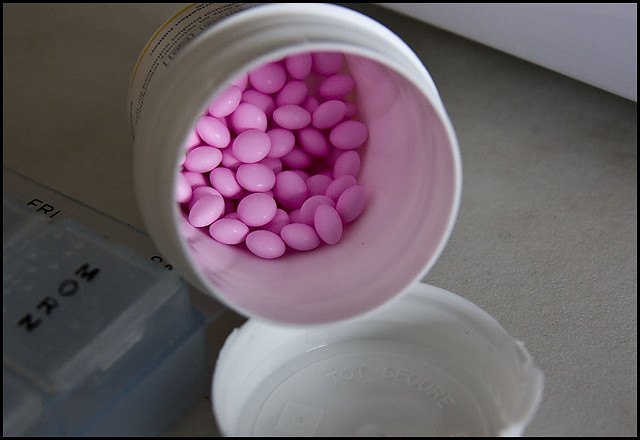‘female viagra’ stimulating controversy: is it really a win for women?
The US Food and Drug Admission (FDA) has approved its first treatment for ‘sexual desire disorder’ in women, with the new drug being hailed as a ‘Female Viagra’. The drug, praised by the FDA for its effectiveness in treating ‘generalized hypoactive sexual desire disorder (HSDD) in premenopausal women,’ has caused a stir amongst critics in the media world.
According to Forbes Magazine, the drug has been so popular that its manufacturing company (Sprout Pharmaceuticals) has been bought out by Valeant Pharmaceuticals for $1 billion. Sprout Pharmaceuticals have said that Valeant plan to use their global footprint to register the drug internationally, so that women worldwide have access to it. But is the drug really the miracle that women have been waiting for?
Firstly I should point out that ‘Female Viagra’, aka Flibanserin or Addyi for short, is nothing like Viagra at all. According to Drugs.com, ‘Flibanserin involves regulation of several brain chemicals that may affect sexual desire, although the exact mechanism is not known,’ whereas ‘Viagra (sildenafil) relaxes muscles and increases blood flow to particular areas of the body.’ This means that Addyi works on a psychological level, while Viagra works on a physiological one.
Dr. Karen E. Adams, clinical professor of OBGYN and Director of the Midlife Women’s Clinic at Oregon Health and Science University, told Forbes Magazine, ‘It’s not going to be like Viagra, where almost anyone can take it and see an immediate response.’
The FDA carried out an in-depth study prior to approving the drug, which found that women taking Addyi only had 0.5 to one more satisfying sexual events per month compared to women taking a placebo pill. The FDA claims that, ‘10 percent more Addyi-treated patients than placebo-treated patients reported meaningful improvements in satisfying sexual events.’ The FDA also admits that ‘Addyi has not been shown to enhance sexual performance.’ This evidence demonstrates that Addyi may not be the miracle sex drug women have wished for.
Addyi must be taken on a regular basis, daily at bedtime for maximum benefits, and has a risk of severe side effects. Valeant Pharmaceuticals states that some of the most common include dizziness, somnolence, nausea, fatigue, insomnia and dry mouth. According to the FDA, mixing with alcohol with Addyi can result in ‘the increased risk of severe hypotension and syncope,’ or in other words, extremely high blood pressure and fainting. Due to these extensive risks, alcohol consumption is not permitted while taking Addyi and the drug will only be sold in pharmacies that have undergone the FDA’s strict risk evaluation to ensure safe use. Considering alcohol is widely considered by women as one of the best tools for libido enhancement, is going cold turkey really the best way to have more sex?
Dr. Adams told Forbes Magazine, ‘Probably what’s going to happen is women are going to take this drug and, after a few weeks, they’ll say, “Oh, it’s fine, so I’ll have a little glass of wine, and we’ll see.” It’s not too much of a stretch to think of women having fainting episodes in restaurants because they mixed it with alcohol.’
Forbes magazine has revealed that 43% of women complain of an unhappy sex life; this substantial figure shows that a treatment for sexual dysfunction in women is necessary. Whether Addyi is the answer to this need, with its considerable risks and low success rate, is something a woman must discuss with her doctor, Dr. Adam says.
‘All the hype is a little misplaced because it’s not particularly effective… I wish it weren’t as risky as it is, but it’s a risky drug. A doctor really needs to evaluate all the other aspects of a woman’s health history that could be impacting her sex drive first. It’s completely inappropriate to prescribe a pill to a woman as a first-line treatment for low sexual desire,’ said Dr. Adams.


